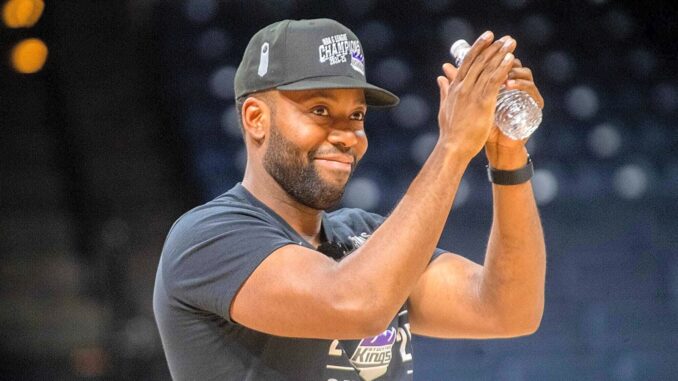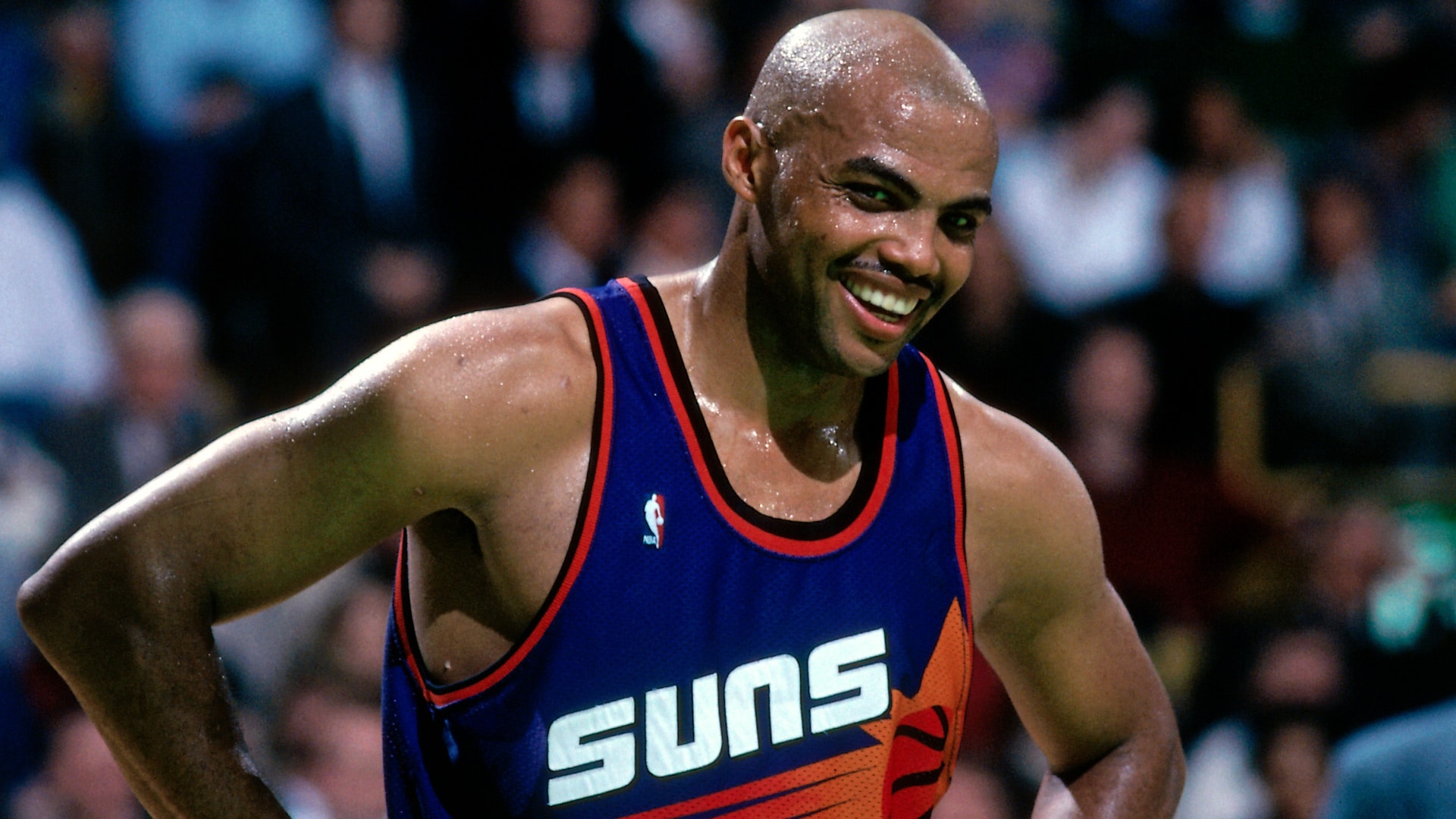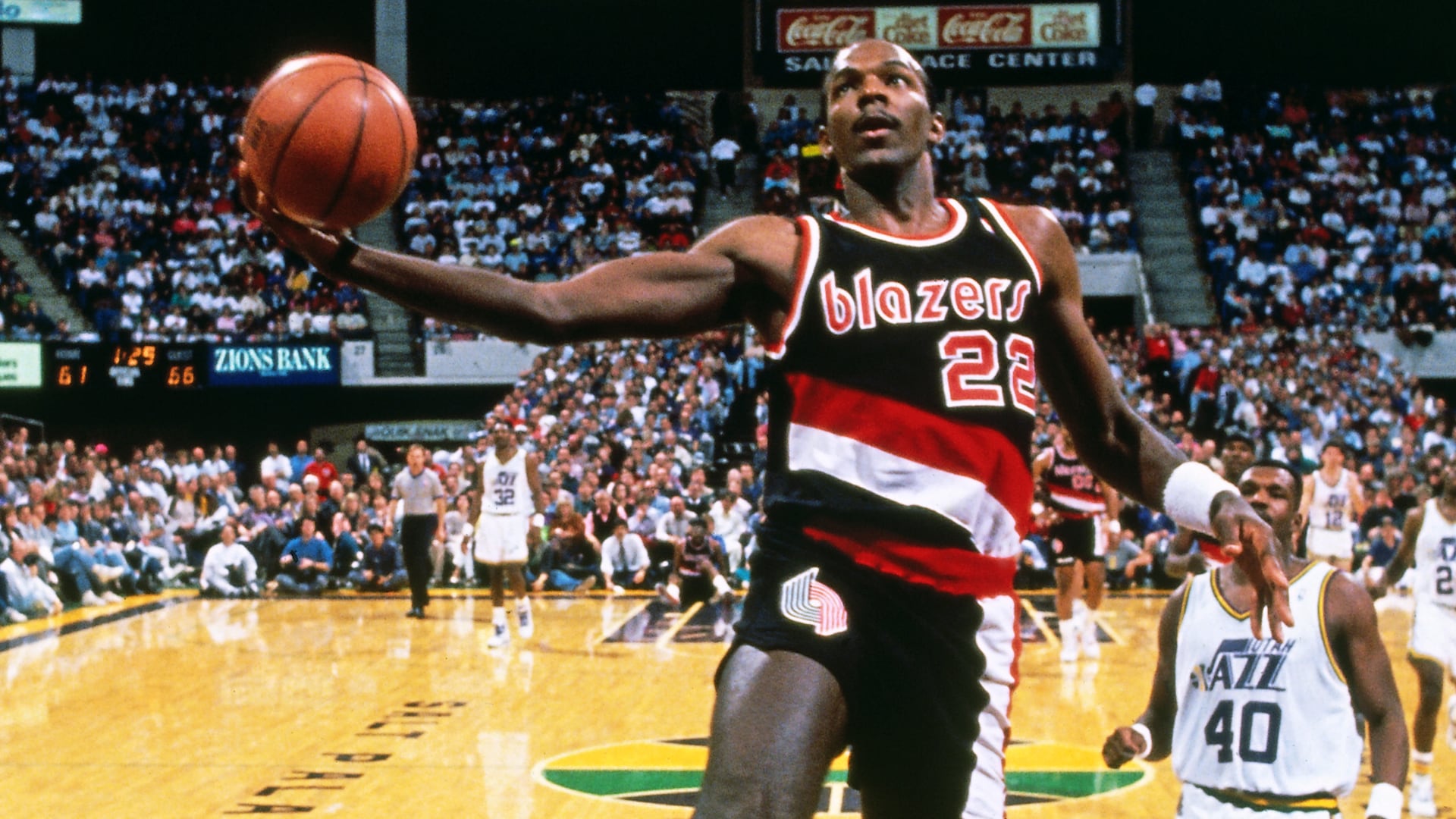
In the modern NBA landscape, not every impactful decision comes wrapped in spectacle. Some moves often slip under the radar. Though some decisions arrive with little fanfare, they usually become the quiet pivots that subtly reshape a franchise’s direction over time. The Portland Trail Blazers’ recent hiring of Quinton Crawford as an assistant coach is one such move. There were no splashy rollouts or press conferences; instead, there was a quiet press release and a name added to the coaching staff.
Nonetheless, beneath the quiet announcement, a message lay hidden. One that speaks less about today’s headlines and more about tomorrow’s blueprint. In a league where perception often outpaces patience, the Portland Trail Blazers’ decision to bring Crawford on board says something intentional about development, identity, and the kind of culture the franchise is trying to build from the ground up.
From the Lakers’ Sidelines to Portland’s Rebuild
While Quinton Crawford may not be a household name, his career has been shaped within the orbit of championship-caliber basketball. A rising tactician, Crawford spent a significant portion of his coaching career alongside some of the sharpest minds in the league, most notably Darvin Ham and Frank Vogel in Los Angeles. With the Los Angeles Lakers, Crawford played a crucial supporting role in the team’s 2020 title run.
Moreover, Crawford has also worked with numerous stars, developed young talent, and even earned a reputation as a detail-oriented coach who is not afraid to do the dirty work behind the scenes. In that very sense, Portland is not just hiring a coach; they are bringing in a philosophy.
While this hiring may not scream ambition, it does whisper intentionality. Unlike many teams in the NBA, the Portland Trail Blazers are not pursuing celebrity coaches or nostalgic names from the past. The team is rebuilding from the ground up, laying down the bricks with care and precision. And Crawford is a perfect fit for that blueprint.
Coaching Clarity in the Post-Stotts Era
Since the departure of Terry Stotts in 2021, the Portland Trail Blazers haven’t only been searching for wins, but also for an identity. In hiring Chauncey Billups, the front office hoped to establish a defensive-minded culture and to modernize the system. However, the results have been uneven so far. Most of these setbacks can be attributed to injuries, some to roster flux, and some to the steep learning curve faced by a young coach in charge of a young team during a full-blown rebuild.
The arrival of Crawford, whose resume combines both exposure to elite-level execution and developmental experience, could be an early sign that the franchise is strengthening the foundations beneath Billups. This is the type of move that suggests a long-term recalibration of the coaching infrastructure, rather than just short-term damage control.
Crawford’s hiring may be viewed as the Portland Trail Blazers subtly acknowledging the need for more specialized voices within the team’s coaching staff, specifically those who can translate complex schemes into digestible actions for a roster full of developing players. While Billups brings vision and credibility, there has been a visible discontent between the strategy and on-court execution. The addition of someone like Crawford, who has operated in many systems where structure meets adaptability, might be crucial in helping close the gap.
Furthermore, Crawford’s hiring also signals a quiet shift in how the Portland Trail Blazers may be redefining what leadership looks like on its bench. In the previous years, the team happened to lean heavily on tenure and loyalty. Now, there is a growing sense that fresh perspectives, backed by recent championship experience, may be the new currency.
That being said, Crawford does not just bring ideas; he brings fluency in the language of winning environments. For a head coach like Billups, who is still navigating the complex transition from former player to full-fledged bench strategist, this type of experience could prove to be extremely valuable.
Recalibrating the Blazers’ Coaching Identity
Every assistant coaching hire subtly reflects how a franchise sees itself or how it wants to be seen. The recent Crawford hire feels like a quiet commitment to modernity. He is not from the recycled Rolodex of coaching veterans. He is part of a growing wave of assistant coaches who are not only tactically sharp but also emotionally intelligent and future-facing.
This also suggests that the Portland Trail Blazers are no longer looking for yes-men around Billups. They are surrounding the seasoned coach with voices who can challenge him constructively and offer fresh ideas in areas where the team has lagged, specifically on the defensive end and in late-game execution.
Over the last two seasons, these have been some of the areas where Portland has continued to struggle: too many collapses and too many stretches where the defense has unraveled. If Crawford can be a part of the coaching recalibration that steadies those areas, the wins might not come right away, but the growth will be noticeable.
The presence of Crawford could also help address one of Portland’s most pressing needs: aligning player development with a coherent tactical identity. In the last two seasons, individual growth has occurred in a vacuum, where the players have been able to improve their skill sets without a unifying system to tie those specific pieces altogether.
With Crawford’s background in developing heavy environments like the Lakers and the Dallas Mavericks, Crawford brings a track record of helping young players grow within a clearly defined structure. That is the next frontier for the Portland Trail Blazers: not just developing talent, but developing it in context.
Measured Moves for a Measured Rebuild
Crawford’s hiring will not instantly turn the Portland Trail Blazers into title contenders. Furthermore, this move will also not address a roster that is still missing a steadfast front-court anchor, nor will it answer all the questions about Chauncey Billups’s ceiling as a head coach.
When all is said and done, this move represents something more significant and subtle —a move that is deeply rooted in strategy rather than sentiment. It clearly shows that the Portland Trail Blazers are thinking beyond just the following season, as they are trying to assemble the right thinkers behind the scenes to set a tone that is more about basketball IQ than bravado. It is the type of long-view patience that rebuilding teams often preach but rarely practice.
In many ways, Crawford’s hiring feels more like the basketball equivalent of good drafting, which often boils down to process, projection, and potential. It’s a sign of culture-building and not just box score improvement. And perhaps most importantly, it signals that the Portland Trail Blazers are finally beginning to embrace the idea that rebuilding is not just about acquiring talent, but also about developing the infrastructure that nurtures it.
In an era where coaching staffs are increasingly analytical and collaborative, Crawford fits the mold of a modern assistant: development-focused, adaptable, and comfortable operating outside of traditional hierarchies. That matters for a franchise that is trying to evolve from its past of isolation into something more dynamic, fluid, and team-oriented.
Over the past few years, the Portland Trail Blazers’ front office has faced considerable criticism for its unclear direction. However, this most recent hire suggests a flicker of alignment between action and vision. While this hire may not generate headlines, Crawford’s arrival will undoubtedly influence how the team thinks, competes, and trains day in and day out. In a rebuild defined more by patience than splashy promises, these are the types of margins that can eventually move a franchise forward.
Conclusion
The hiring of Quinton Crawford is not about headlines; it’s about alignment. With the Portland Trail Blazers at a pivotal crossroads in their rebuild, this move reads less like a footnote and more like a signal: that the Portland Trail Blazers are beginning to define who they want to be, not just on the basketball court but also behind the scenes.
Crawford brings with him a toolkit that has been forged in competitive environments and systems that prioritize adaptability and precision. That matters in Portland, where, at times, the blueprint has felt as if it were being redrawn mid-season.
Crawford’s arrival also injects not just the technical expertise, but a sense of structure and perhaps overdue accountability. That being said, if the Portland Trail Blazers are keen on making significant progress, they will need more moves like this. Moves that prioritize systems over spectacles.



